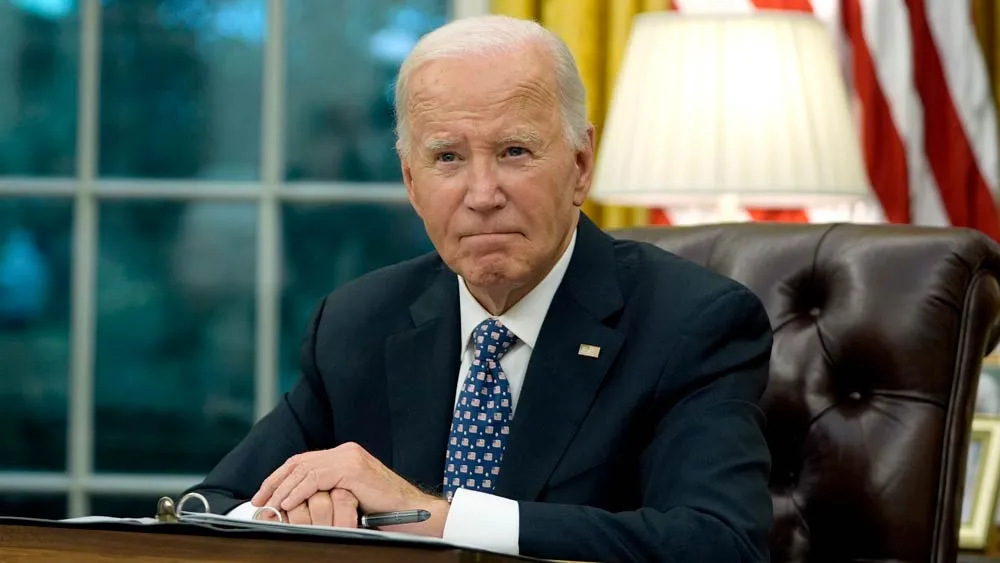April 24, 2013
RI Senate Leader Plays Key Role in Marriage Debate
Jason St. Amand READ TIME: 5 MIN.
If Rhode Island joins the rest of New England in allowing gay and lesbian couples to wed, it will be because a formidable opponent, Senate President Teresa Paiva Weed, moved out of the way.
The state's first female Senate leader, Paiva Weed has long been the most visible obstacle to gay marriage in Rhode Island. Those behind an aggressive campaign to pass marriage legislation this year worried she would let the bill languish in committee or kick the question to the voters as a ballot referendum.
Instead, she vowed to let the debate take its course, and on Wednesday the Senate is expected to take a landmark vote on whether to join nine other states and Washington, D.C., in allowing gays and lesbians to wed. Paiva Weed said that despite her opposition, the question of gay marriage is too important to bottle up.
"I will not vote for it," she told The Associated Press in a recent interview in her Statehouse office. "But I have committed to having a full, fair and open debate."
Paiva Weed is known as a circumspect political insider who avoids the public spotlight often sought by other politicians. First elected in 1992, she led efforts to restructure the state's welfare system and change the way judges are selected. After assuming the presidency in 2009, she oversaw legislation that revamped the state income tax and overhauled the state pension system to save billions of dollars in future years.
Her legacy, however, could be determined by her handling of gay marriage - a defining issue Paiva Weed wouldn't have chosen and doesn't like to discuss.
One of her constituents, Martin Douglas, of Newport, said he thinks Paiva Weed is "out of touch" with her hometown. Douglas has voted for her in the past but thinks she is on the wrong side of public opinion when it comes to marriage.
"There are a lot of gay people in Newport," said Douglas, who is straight. "She seems to have gotten lost in politics in Providence. Her feelings and opinions cast a shadow over everything that happens in the Senate."
While Paiva Weed's opposition has long confounded gay marriage supporters, her nuanced handling of the issue this year is winning her praise from some on both sides. Opponents admire her conviction; gay marriage advocates applaud her decision not to let that conviction stop the debate.
"I give her a lot of credit," said Sen. Donna Nesselbush, a Pawtucket Democrat and the main sponsor of the bill in the Senate. "These bills would not be where they are without her leadership on the issue. I've heard stories about leaders derailing bills or killing bills, and that's not happening, and that says something about her."
A Newport native, Paiva Weed grew up in a middle-class family and worked as a Statehouse page and tour guide at Fort Adams State Park. She graduated from Providence College - a Catholic school - before earning a law degree at Catholic University in Washington, D.C.
She was married for 23 years to Mark Paiva, who died of cancer in 2009, just months after his wife was sworn in as the state's first female legislative leader. A private person in a public role, Paiva Weed doesn't talk much about her personal life. Her legislative biography lists only her birthday and educational background.
In a Statehouse known for bluster and bravado, Paiva Weed is known as a diligent lawmaker who does her research.
"She's tenacious," said former state Sen. Charles Levesque, now a state magistrate. "I may have underestimated her at first because she's soft-spoken, but she succeeds because she works harder than anyone."
Paiva Weed won't say whether her opposition to gay marriage springs from her Catholic beliefs, personal history or legal background. Two years ago, when a reporter asked her about gay marriage following an event to celebrate a Boston Red Sox charitable donation, she literally ducked the question, hiding behind the team's costumed mascot, Wally the Green Monster.
Though her opposition helped sink gay marriage legislation in 2011, Paiva Weed supported legislation that year that allowed gay and lesbian couples to form civil unions.
Unlike most gay marriage opponents, Paiva Weed uses a term coined by supporters - "marriage equality" - instead of same-sex marriage. She said she uses the term out of respect.
"She is a person of compassion, a person of intellect, and a person of belief, and she's trying to reconcile all that," said House Speaker Gordon Fox, D-Providence, who is openly gay.
Since promising a full and unfettered debate on gay marriage, Paiva Weed has been the subject of Statehouse rumors suggesting she might vote yes on gay marriage or attempt to extract concessions from Fox and other supporters. Paiva Weed dismisses such speculation.
"There are a number of people who are real cynics of government, and they read into anything you say or do," she said.
It may be that Paiva Weed wants to avoid standing in the way of gay marriage while at the same time staying true to her religious convictions, according to Clement "Bud" Cicilline, who served in the Senate alongside her until legislative redistricting forced them to run against each other. Cicilline lost but said he counts Paiva Weed as a friend.
"She reads the polls, and sees that people generally support it now," he said about gay marriage. "I don't think she's changed her position - she's always been true to her faith - but she isn't going to impose her personal opinions on the rest of the Senate."


